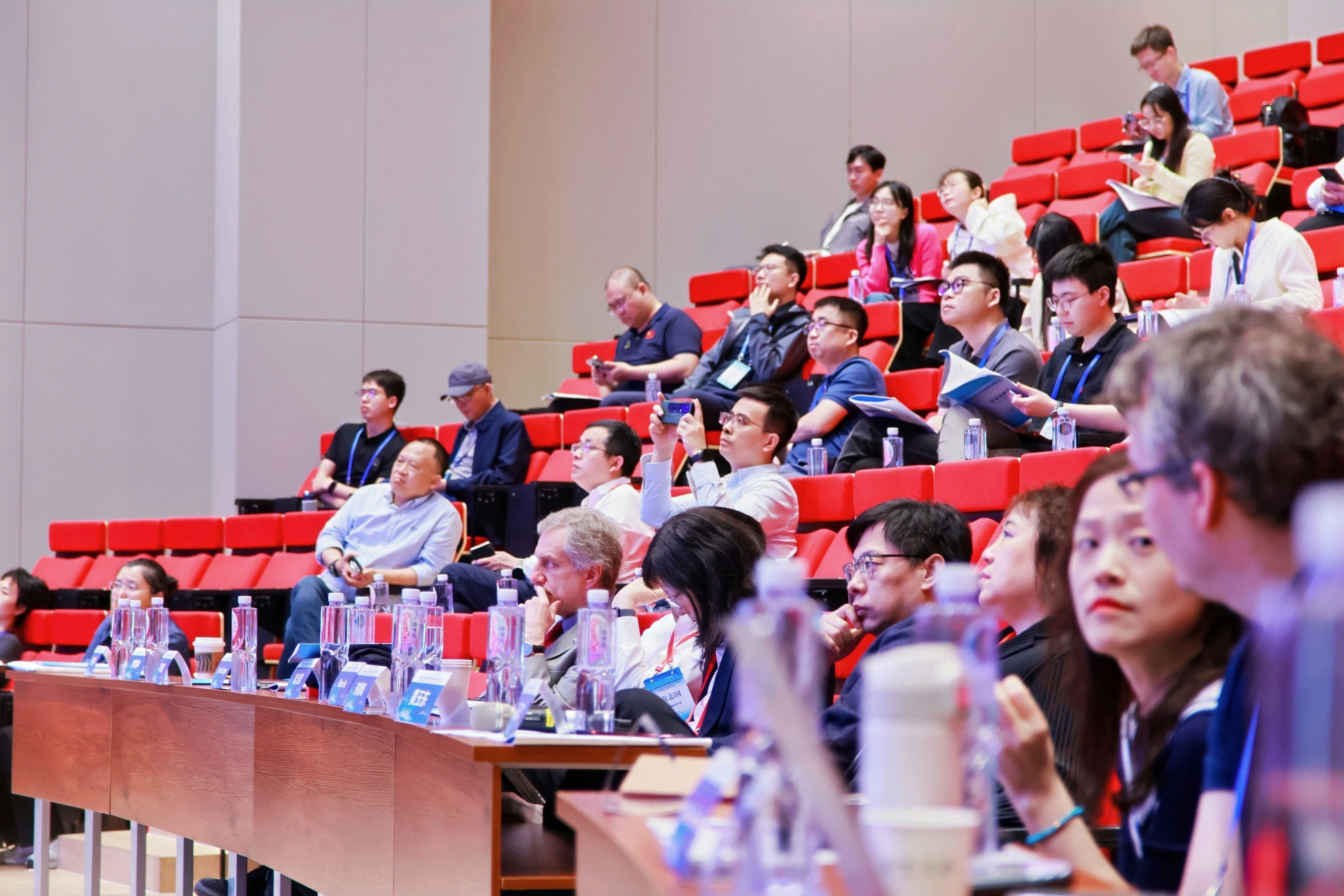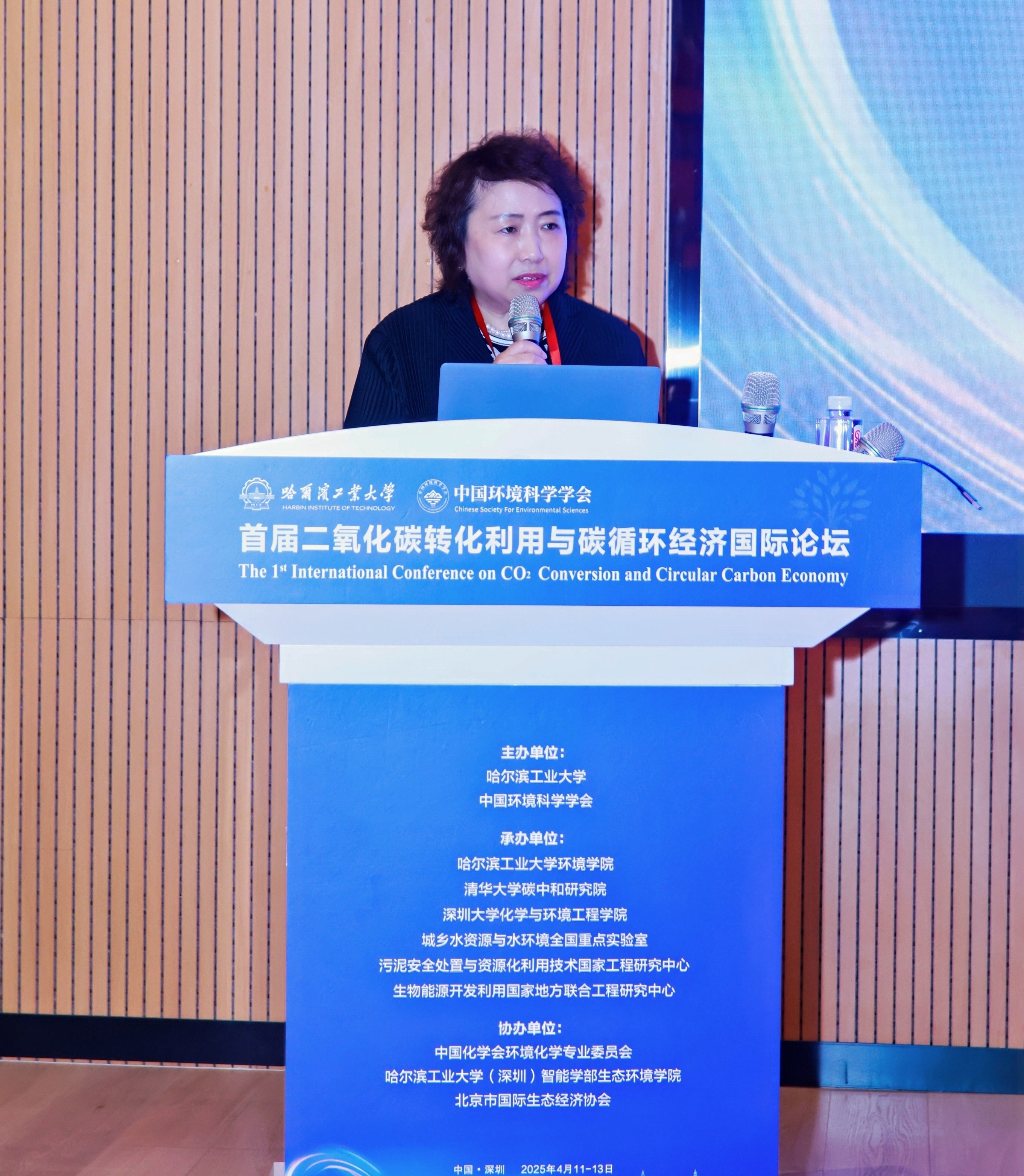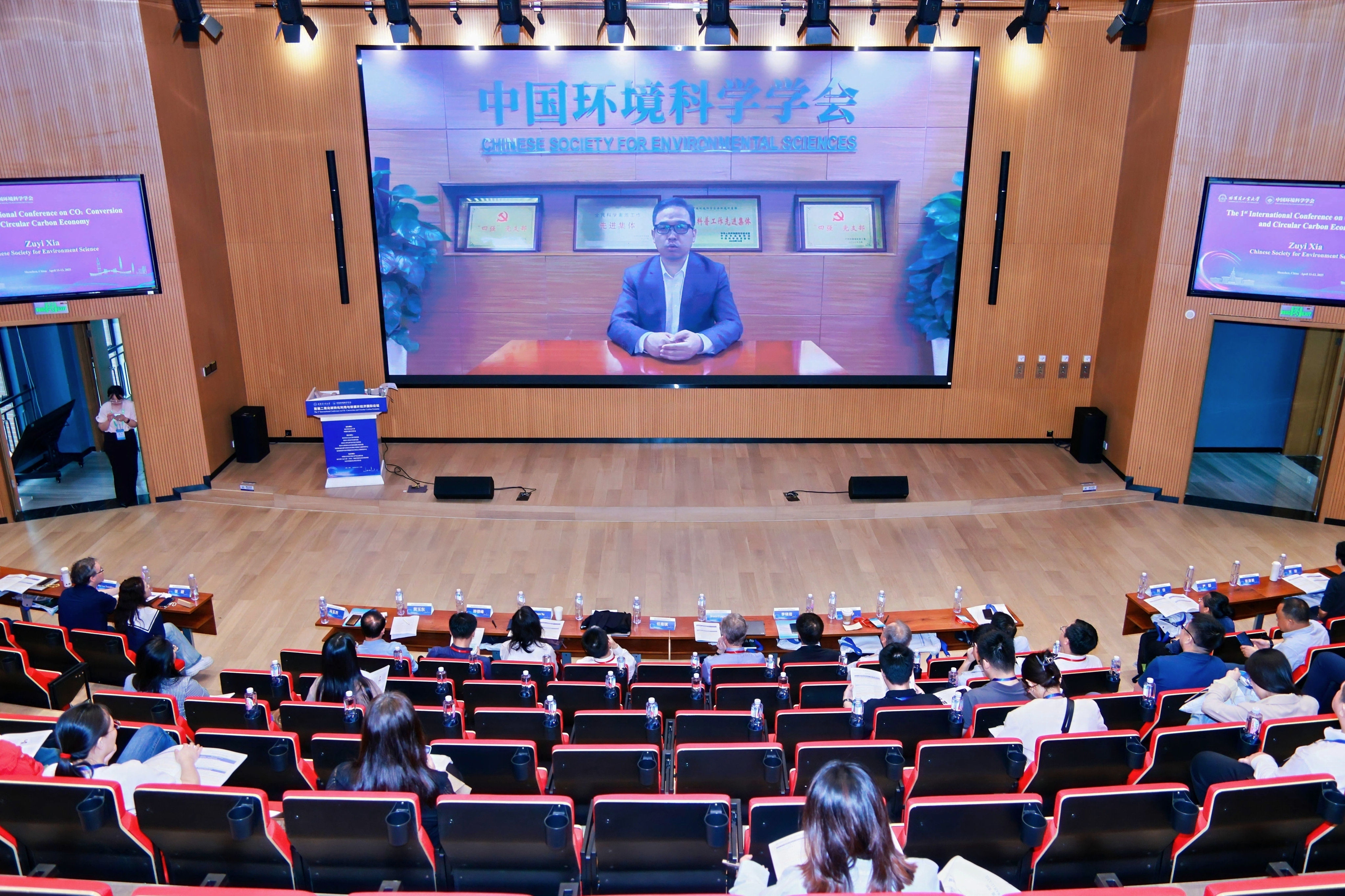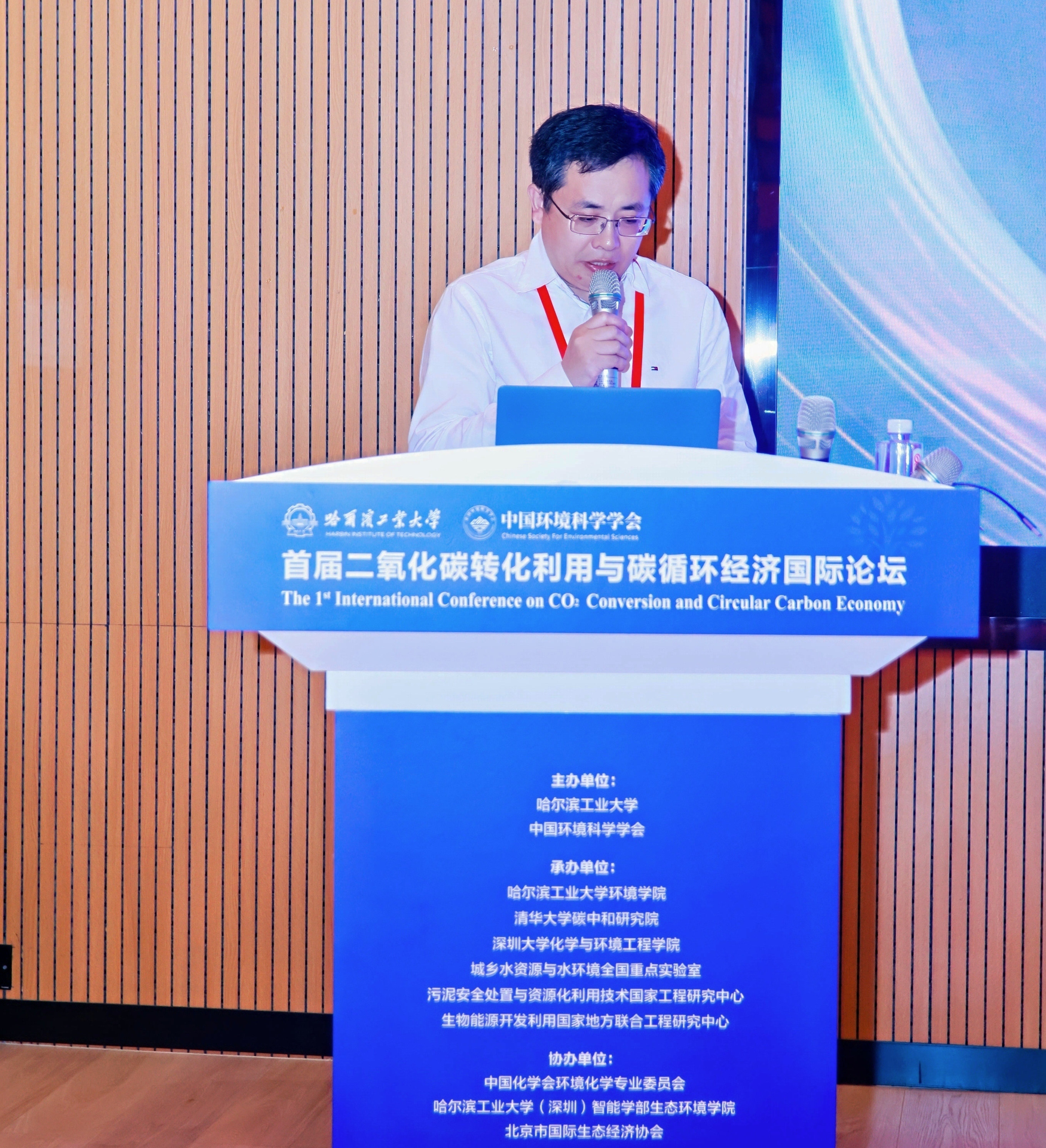The 1st International Conference on CO2 Conversion and Circular Carbon Economy Was Successfully Held in Shenzhen from April 11 to 13, 2025. Centered on the theme of “Exploring Green Technologies, Empowering a Low-Carbon Future,” the conference was jointly organized by Harbin Institute of Technology and the Chinese Society for Environmental Sciences. It was hosted by the School of Environment at Harbin Institute of Technology, the Carbon Neutrality Research Institute at Tsinghua University, the School of Chemistry and Environmental Engineering at Shenzhen University, the State Key Laboratory of Urban-rural Water Resources and Environment, the National Engineering Research Center for Sludge Safe Disposal and Resource Utilization Technology, and the National-Local Joint Engineering Research Center for Bioenergy Development and Utilization. It was also co-organized by the Environmental Chemistry Committee of the Chinese Chemical Society, the School of Ecological Environment under the School of Intelligent Science and Engineering at Harbin Institute of Technology (Shenzhen), and the Beijing International Ecological Economics Association. Academician Nanqi Ren serves as the Chair of the Academic Committee for this conference, with Professor Yujie Feng from the School of Environment serves as the Vice Chair.

The opening ceremony was chaired by Professor Yujie Feng. Academician Nanqi Ren analyzed the pivotal role of scientific and technological innovation in addressing climate change, emphasizing that cutting-edge R&D and interdisciplinary integration could provide critical technological support for global carbon reduction efforts. Zuyi Xia, the Secretary-General of the Chinese Society for Environmental Sciences underscored the urgency of international cooperation in advancing green and low-carbon societal development, stressing that nations must share technological achievements to tackle the global challenge of climate change. President Yudong Huang of Harbin Institute of Technology (Shenzhen) proposed strategic pathways to accelerate technological breakthroughs and industrial applications, calling for coordinated efforts among governments, enterprises, and research institutions to propel carbon-neutral technologies from laboratories to large-scale markets. Liangliang Wei, the Vice Dean of the School of Environment at Harbin Institute of Technology, emphasized from a talent strategy perspective that low-carbon technology development urgently requires close integration with applied talent cultivation. He called for optimizing curriculum systems and deepening industry-education integration to provide high-quality technical talent support for the green and low-carbon transition.





Nearly 100 academic representatives from over 20 universities and research institutions across China, along with experts and scholars from the United States, the United Kingdom, and Australia, attended the conference. Keynote presentations were delivered by distinguished scholars including Professor Bruce E. Logan (Member of the National Academy of Engineering, USA; Foreign Member of the Chinese Academy of Engineering), Professor Zhiguo Yuan (Member of the Australian Academy of Technology and Engineering, City University of Hong Kong), Professor Duzhong Li (City University of Hong Kong), Professor Xiaoyan Li (Tsinghua University), Professor Eileen Yu (University of Southampton, UK), Research Fellow Xing Lei (University of Surrey, UK), and Professor Defeng Xing (Harbin Institute of Technology). Scholars from prestigious institutions including Tsinghua University, Peking University, Harbin Institute of Technology, and Tongji University engaged in in-depth discussions on key topics such as the research and development of critical materials for catalytic carbon dioxide conversion, synthetic biology and the construction of cellular factories for carbon dioxide conversion, low-carbon wastewater treatment and energy/resource recovery, advancements in AI-assisted CCUS (Carbon Capture, Utilization, and Storage) technologies, and future energy, they explored innovative pathways for carbon dioxide conversion and utilization, contributing wisdom and strength toward achieving the dual carbon goals.
The resource utilization of carbon dioxide is one of the key pathways to achieving carbon neutrality. This represents not only a revolutionary transformation of traditional carbon resource utilization models but also provides crucial technological support for building a new low-carbon circular economy system. This conference has strengthened ecosystem-wide collaborative innovation by promoting multidisciplinary integration, deepened international scientific cooperation and technological exchange, and collectively advanced low-carbon technological innovation and breakthroughs. This conference holds significant importance for fostering industry-academia-research collaboration, accelerating the industrial application of low-carbon technologies, and enhancing talent development and exchange. It also contributes Chinese wisdom and solutions to global climate governance.
